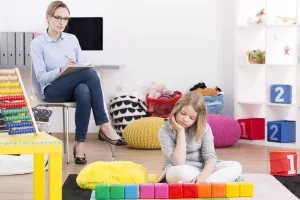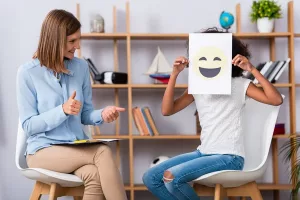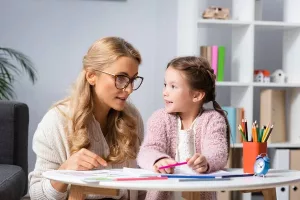All of us may feel low or down from time to time but feeling low does not necessarily mean something is wrong. It is common to feel low after upsetting events or major life changes. However periods of low mood sometimes happen with no obvious reason. Low mood is an emotional state where you may feel sad, tired, anxious, frustrated and experience low self-esteem.
What is depression
We can all feel down or moody from time to time, but depression relates to experiencing these feelings for extended periods of time and when you lose interest in things you would usually enjoy or find pleasurable. Depression is a mood disorder that causes a persistent feeling of sadness and loss of interest. Depression affects how you feel, think and behave and can lead to a range of emotional and physical difficulties. Depression can lead to anger and irritability. Furthermore, confusion, difficulties with memory, or difficulty focusing may become apparent along with increased tiredness or sleep difficulties. Physical symptoms including stomach distress, frequent headaches, or back and other muscle pain could also be related to depression. Thankfully there is a lot of support available to manage symptoms of depression.
What may cause depression
Symptoms of depression can occur for several reasons and experiencing stressful events can be one cause but certainly not the only one. There is no single cause for depression and genetic factors may also contribute to this.
What happens during depression
Depression negatively affects how you feel, the way you think and how you act. Depression may cause you to feel sad and loose interest in previously enjoyed activities. There are lots of ways depression can present. Some common things you may see in children and adolescents include:
- Displaying a sustained bad or low mood. Remember it is normal to feel down from time to time.
- Being self-critical.
- A change in eating and sleeping patterns.
- A loss of interest in activities they previously enjoyed.
- A reduced ability to concentrate.
There are several things you can do to help yourself, or a family member cope with depression. These include:
- Maintain social connection. Family, social and school connections are a great source of support.
- Increase activity levels. Regular exercise along with exposure to fresh air and natural light is great for mental and physical health.
- Maintain engagement in regular activities. As motivation levels are likely to be low, it is important to continue to engage in activities you may feel unmotivated to do.
- Maintain a healthy diet and avoid relying on junk food.
- Make sure your child is consistently getting enough sleep and establish a regular sleep routine. Supporting children to have a positive bedtime experience and regular bedtime is important to ensuring quality sleep.
How to support someone you care about with depression
Sometimes it is hard to know how to help someone who may be experiencing depression. It can be as simple to start with as having a conversation and let them know you are there for them. Keep in mind that it is ok to talk about this and sometimes, especially with children they may not know that they feel sad but feeling acknowledged and validated can be important to them.
An effective way to support little people with big feelings is through Emotion Coaching which includes two main ways of responding:
- Recognise that big emotions and behaviours are opportunities.
- When responding to big emotions and behaviours we don’t want to be dismissive, passive or disapproving.
You can support your child by learning more about Emotion Coaching by engaging yourself and your child in counselling or therapy.
Take care of yourself, because you can’t care for someone if you haven’t first taken care of yourself. In the same when boarding an aeroplane, the safety briefing asks parents to put their oxygen masks on first before their children in the event of a loss of cabin pressure. This is because you can’t help your child with their mask if you aren’t able to breath.
Take the time to learn more about depression, and you would benefit from reading about the symptoms, causes, diagnostic criteria, and treatments on your own.
Be aware of behaviours that may be linked to depression.
Demonstrate and remind your child that you are available to them as is helpful to make them feel supported.
It is important to be patient and kind no matter how challenging it may be to remain supportive and available.
For children it is important to have quality time with their family enjoying an activity or shared interest.
Treatment
Depression is usually treated using evidence based psychological therapy, medication or a combination of the two.
Psychological treatment (talk therapy) can help you and your child change thinking patterns and improve coping skills to be better equipped to deal with life’s stresses and support recovery. Psychological therapies can also help you stay well by providing you with skills to manage symptoms.
The main medical treatment for depression is antidepressant medication which is often prescribed for the treatment of depression in adults but less frequently for treating children and adolescents.
Where can I get support?
If you are in crisis or need support urgently, please contact emergency services on 000.
If you are not in crisis and would like some support, your GP is a good place to start. They can direct you to the most appropriate support service or professional.
There are also many national support lines available to contact for support as well including:
- Head to Health https://headtohealth.gov.au/
- Little Sparks Program: Mental health support for children under 12: contact Beam on 02 4954 9333
- Suicide Call Back Service: 1300 659 467
- Kids Helpline (up to 25 years): 1800 551 800
- Lifeline: 13 11 14
- Men’s Line Australia: 1300 789 978
- Beyond Blue: 1300 224 636
- Q-life LGBTQIA+: 1800 184 527
- Lifeline Text (6pm-12am): 0477 131 114
- GriefLine: 1300 845 745
Beam supports children, adolescents and parents to recognise how depression can affect them, and strategies to manage symptoms for themselves, or someone they care for.
Get in touch
If you have any concerns or questions about therapy, get in touch with Beam for a chat about your child’s situation and how we may be able to help.











